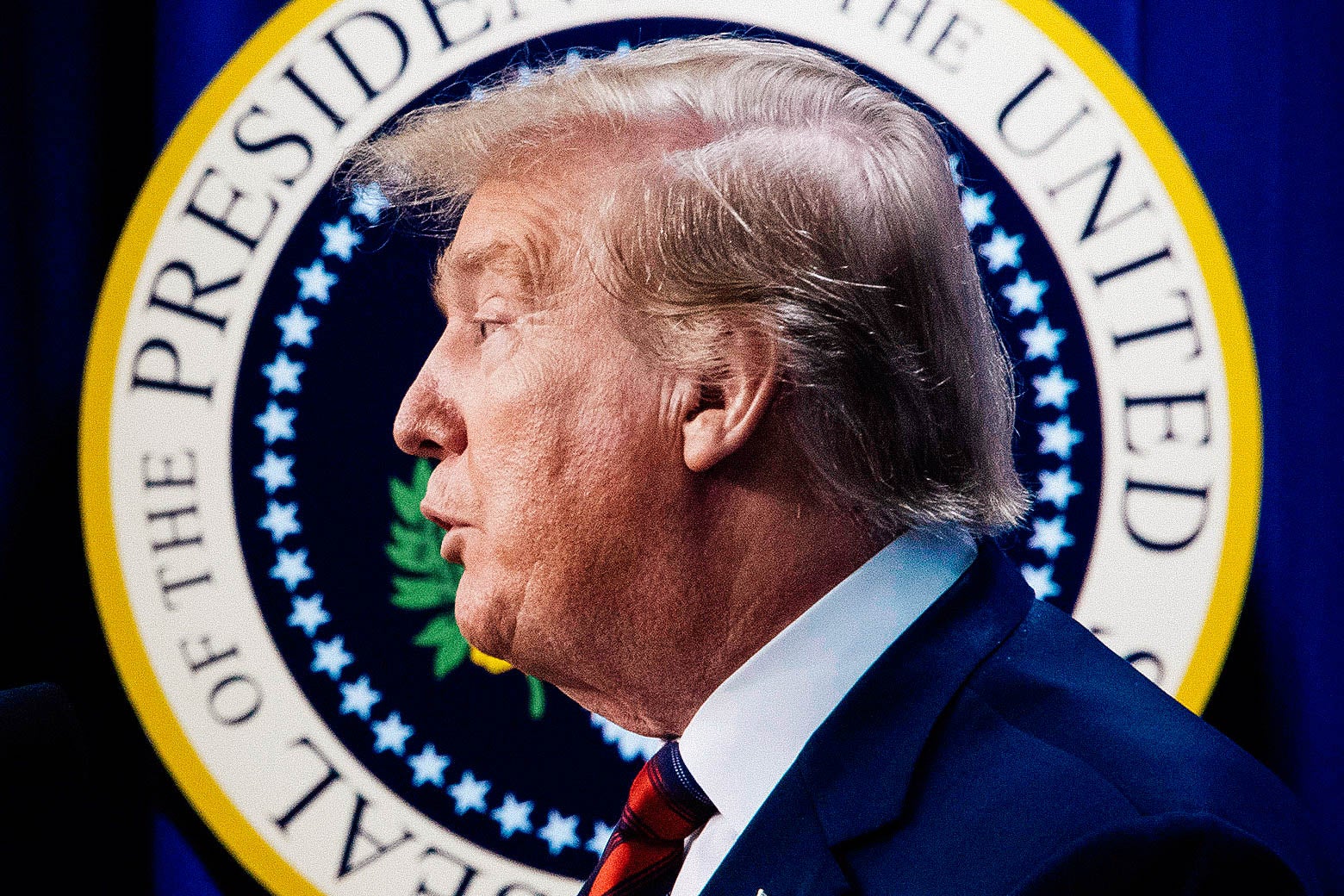When it comes to obstruction of justice, did the president’s team really “save him from himself” as some analysts have put it?
Since Thursday’s release of the Mueller report, commentators in print and on cable news have suggested that but for these resisters, Trump would have committed the felony of obstruction. This is the wrong conclusion to draw from the report.
The confusion may stem from the following statement on Page 158 of Volume II. Here, Mueller wrote: “The President’s efforts to influence the investigation were mostly unsuccessful, but that is largely because the persons who surrounded the President declined to carry out orders or accede to his requests.” This disobedient group included high-level officials—FBI Director James Comey and White House counsel Don McGahn—as well as seeming longtime loyalists Corey Lewandowski and Rick Dearborn. In each case Mueller cited, the president ordered these surrogates—either directly or via another surrogate—to take some extraordinary action to obstruct the Russia probe, and in each case he was rebuffed.
This paragraph, though, has given rise to the belief that when someone’s “efforts to influence” a proceeding fail, there are no grounds for obstruction. Not so. The federal statute and case law make this clear. An attempt to obstruct that fails is still a crime.
Why can failure be a felony? For the answer, let’s explore one of the obstruction provisions that Mueller referenced, 18 U.S.C. § 1512(c)(2). This passage provides that “Whoever corruptly … obstructs, influences, or impedes any official proceeding, or attempts to do so, shall be fined under this title or imprisoned not more than 20 years, or both” (emphasis added).
Making a criminal charge under this and the other relevant obstruction statutes (1503, 1505, and 1512(b)(3) requires allegations of (1) an obstructive act; (2) a close connection (or nexus) with an official proceeding; and (3) a corrupt intent. Or, as Attorney General William Barr acknowledged in his four-page letter to congressional leaders in March, “Generally speaking, to obtain and sustain an obstruction conviction, the government would need to prove beyond a reasonable doubt that a person, acting with corrupt intent, engaged in obstructive conduct with a sufficient nexus to a pending or contemplated proceeding.”
The Mueller report provides proof of all three elements needed to establish obstruction on several potential counts of obstruction. This analysis carefully tracks the statutory language describing an obstruction offense. The report sets out 10 potentially obstructive episodes. In nearly all of them, it establishes a nexus to an official proceeding. The proceedings included, for example, a pending or foreseeable grand jury investigation, a criminal prosecution arising out of the FBI investigation, the special counsel investigation, the congressional investigations, and the investigation by the U.S. Attorney’s office for the Southern District of New York. Mueller also states in the report that the president did at some point have influence on the special counsel’s investigation itself, even though most of his efforts to influence it failed.
Back to the now popular expression that Trump’s team saved him from himself. Not so. Ultimately, both successful and unsuccessful efforts to influence an official proceeding violate the obstruction statute if done with corrupt intent. As Mueller makes clear on Page 11 of the second volume, under Section 1512(c), a person is “guilty of an attempt when he has the intent to commit a substantive offense and takes an overt act that constitutes a substantial step towards that goal.” He then went on to cite precedent that “ ‘soliciting an innocent agent to engage in conduct constituting an element of the crime’ may qualify as a substantial step.’ ” In other words, even his close associates could not save the president from himself.
The final problem for Mueller, though, in presenting evidence that Trump violated the law—which this report certainly does—was showing that corrupt intent without having had the opportunity to question the president because of Trump’s recalcitrance and Mueller’s decision not to issue a subpoena. Ultimately, Mueller settled on an approach where he believed that there was enough evidence he had gathered and in the public record to demonstrate that intent. It’s partially why he was so meticulous in documenting Trump lie after Trump lie, which in several cases pointed to evidence of a guilty conscience.
Given that Barr and Deputy Attorney General Rod Rosenstein sought to absolve the president of obstruction in Barr’s four-page summary letter—when Mueller did no such thing—where does that leave things?
On the very first page of the report’s second volume, Mueller provided an answer. He wrote, “while the OLC opinion concludes that a sitting president may not be prosecuted, it recognizes that a president does not have immunity after he leaves office.” He repeated this again in a footnote at the end of the report that it would “serve the usual purposes of the criminal law” to prosecute a president after he has left office.
More likely, though, at least in the short term, the question of whether or not Trump has obstructed justice will be left to Congress.
